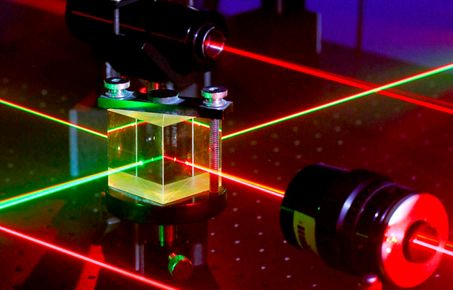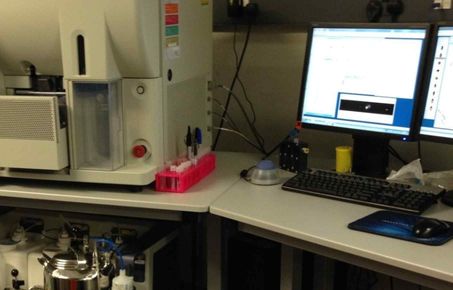Hands-on training is mandatory for all first-time users of the facility regardless of previous flow cytometry experience. Only the SAFB Flow Cytometry Facility staff can give the required training.
Training is free. We only charge the hourly cost rate of the flow cytometer. However, people not using the instruments for at least 5 hours (equivalent to 2 hours for the training session plus 1 additional flow cytometer session) within six months of the training session will be charged for staff and instrument time to the rate of 5 hours of cytometer usage.
Requesting training
New users should follow these steps to request training:
- Create an account on PPMS FLOW_SAFB
- Once your account is approved, create a financial account (orders won’t be received until a valid financial account is set up). Click ‘Profile’ - ‘New account authorization request’
- Request to join the Facility Biosafety Database. Upload an approved Bio1 form and SOP if you intend to analyse unfixed CONTAINMENT LEVEL 2 (CL2) SAMPLES (HG2 pathogens. GM Class II organisms, human cells).
- Create a training request for each cytometer(s) you wish to be trained on. Give us as much information so that we can assess your current experience and advise what to bring for you practical session.
Training process
Training consists of an online training course on Blackboard that takes about 45 minutes, and two practical one-to-one sessions that take 6 hours in total. Prior to using any of the facility instruments, a risk assessment form needs to be completed (the facility does not require a copy).
The online course is compulsory before practical sessions. Imperial College Students can self-enroll by using Course Search to find ‘Flow Cytometry’ in Blackboard. Imperial College staff can email us to request enrollment.
In the first practical session, users will work with fluorescent beads provided by the facility. In the second practical session, users should bring their own samples. Practical training will include:
- Facility induction (including CL2 induction for those users that require it)
- Start-up, cleaning and shutdown of cytometer
- Changing sheath/waste
- Modifying acquisition software settings
- User-specific experiment set-up in acquisition software
- Sample acquisition
- Basic troubleshooting
Upon completion, users will be given access to the relevant booking calendar.
Users already experienced on a flow cytometer still need a short introduction for any other instrument they want to use.
Complementary training
Complementary workshops are held in person throughout the year, or available via Blackboard. These are recommended for all new users, or those who wish to refresh their knowledge. Workshops cover:
- EXPERIMENTAL SET-UP: sample prep, panel design.
- COMPENSATION: Manual and automated compensation, rules for single colour controls.
- DATA ACQUISITION AND ANALYSIS: Controls, compensation, gating, high-dimensional.
We also offer advice on panel design using our experience in colour choices in order to get you on track faster and economically more efficiently.
Training records
All users should log flow cytometry training in their personal competency records:
- FoNS users,
- Users from other faculties should contact their departmental Health and Safety team for information of training record system.
Links to other pages in Flow Cytometry Facility
Postgraduate research
Interested in studying a PhD at the Department of Life Sciences? Find out more about postgraduate research opportunties.
Useful links for researchers

Useful links
General enquiries
Flow Cytometry Facility
South Kensington
Sir Alexander Fleming Building
Fifth Floor, Room 532
South Kensington Campus
Imperial College London
Exhibition Road
London SW7 2AZ, UK
flow@imperial.ac.uk
+44 (0)20 7594 5423


